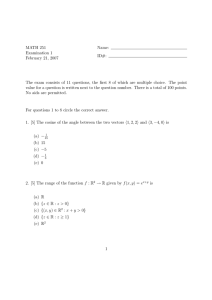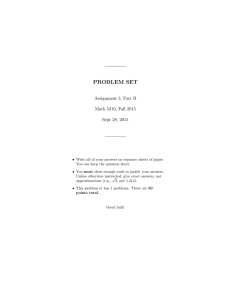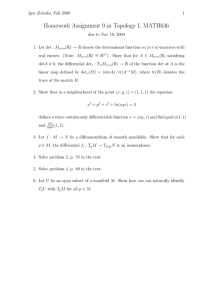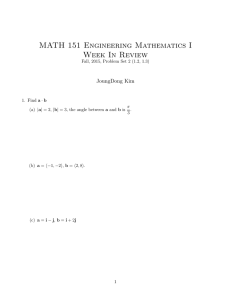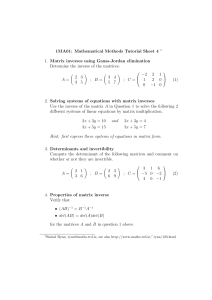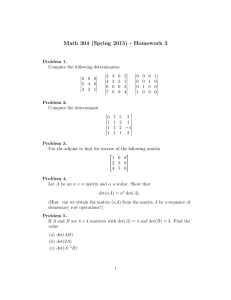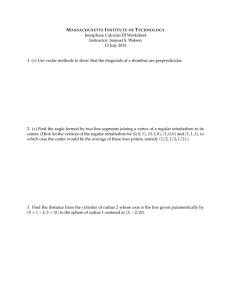Student Questions 9-9-14 What is your favorite color? Green
advertisement
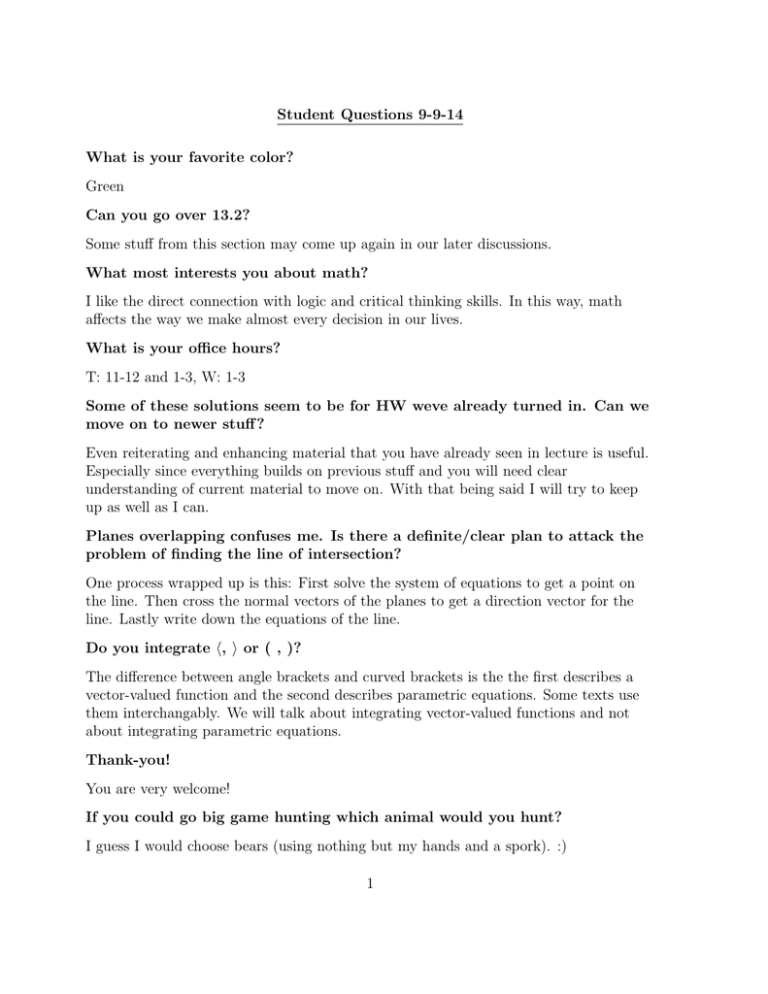
Student Questions 9-9-14 What is your favorite color? Green Can you go over 13.2? Some stuff from this section may come up again in our later discussions. What most interests you about math? I like the direct connection with logic and critical thinking skills. In this way, math affects the way we make almost every decision in our lives. What is your office hours? T: 11-12 and 1-3, W: 1-3 Some of these solutions seem to be for HW weve already turned in. Can we move on to newer stuff ? Even reiterating and enhancing material that you have already seen in lecture is useful. Especially since everything builds on previous stuff and you will need clear understanding of current material to move on. With that being said I will try to keep up as well as I can. Planes overlapping confuses me. Is there a definite/clear plan to attack the problem of finding the line of intersection? One process wrapped up is this: First solve the system of equations to get a point on the line. Then cross the normal vectors of the planes to get a direction vector for the line. Lastly write down the equations of the line. Do you integrate h, i or ( , )? The difference between angle brackets and curved brackets is the the first describes a vector-valued function and the second describes parametric equations. Some texts use them interchangably. We will talk about integrating vector-valued functions and not about integrating parametric equations. Thank-you! You are very welcome! If you could go big game hunting which animal would you hunt? I guess I would choose bears (using nothing but my hands and a spork). :) 1 Which university would you most like to work at? Honestly probably ISU. Just to clarify, there is a difference between the vectors from a vector valued function and the curve traced out by them right? Absolutely. The curve consists of points and the outputs of a vector valued function are vectors. Some authors talk about the curve and the vector valued function interchangably. I don’t agree with this but they probably do it because the only difference in notation between the two are angle brackets vs. curved brackets. So r(t) = (x(t), y(t), z(t)) is the curve traced out by ~r(t) = hx(t), y(t), z(t)i. Can we see more graphical examples? That depends on what the examples are of but I like to draw pictures whenever I can. What is your favorite formula/equation? I would probably say the one that has been deemed the most beautiful math equation. Here is the article: http://www.scientificamerican.com/article/equations-are-art-inside-a-mathematiciansbrain/ I’m confused about the positive and negative columns of cross products. You only have to worry positive and negative terms when you do a 3x3 about a b c d f d f d e determinant. So det d e f = a · det − b · det + c · det . h I g I g h g h I There you see that the signs of a, b, and c go plus, minus, plus. So ~i ~j ~k u u u u u u 2 3 1 3 1 2 ~u × ~v = det u1 u2 u3 = ~i · det − ~j · det + ~k · det v2 v3 v1 v3 v1 v2 v1 v2 v3 = ~i(u2 v3 − u3 v2 ) − ~j(u1 v3 − u3 v1 ) + ~k(u1 v2 − u2 v1 ) = ~i(u2 v3 − u3 v2 ) + ~j(u3 v1 − u1 v3 ) + ~k(u1 v2 − u2 v1 ) = (u2 v3 − u3 v2 )~i + (u3 v1 − u1 v3 )~j + (u1 v2 − u2 v1 )~k = hu2 v3 − u3 v2 , u3 v1 − u1 v3 , u1 v2 − u2 v1 i I would like help on those 3D sufaces and their equations. I break the equations into 3 categries: 2 (1) x2 y 2 z 2 =1 a2 b 2 c 2 The question is what is the sign in the boxes. • If its +, + then its an ellipsoid • If its +, −then its a hyperboloid of 1 sheet • If its −, − then its a hyperboloid of 2 sheets (2) y 2 x2 z 2 = 2 b a c • If its + then its an elliptical paraboloid • If its −then its a hyperbolic paraboloid (3) z2 x2 y 2 + = This is just an elliptical cone. a2 b2 c2 3
